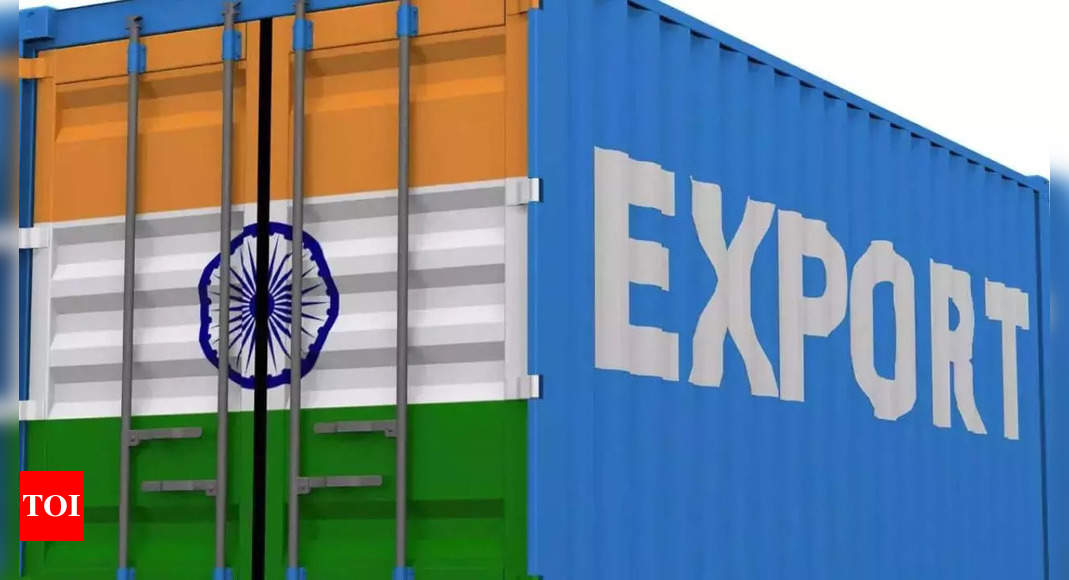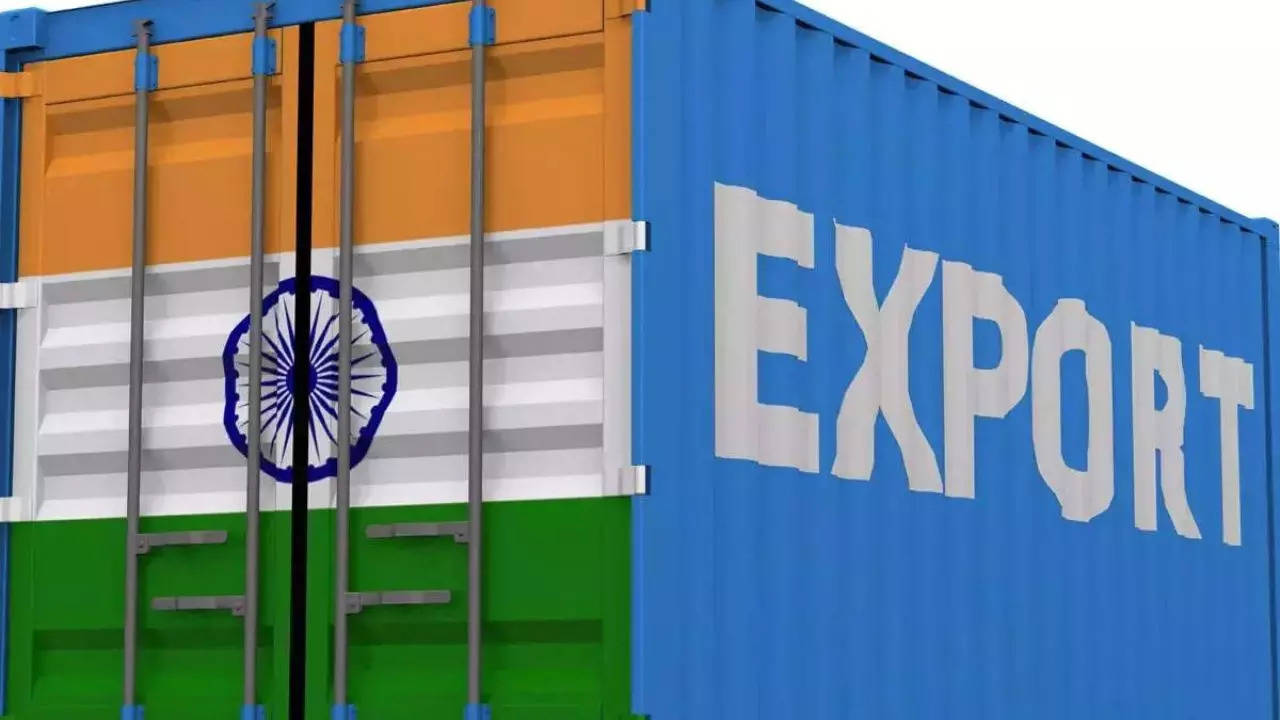[ad_1]
Indian exporters have urged the federal government to exempt them from the 45-day cost guidelines for items purchased from micro and small enterprises (MSEs) as it’s going to affect their companies. In a letter to Prime Minister Narendra Modi, chiefs of main export promotion councils and federation of Indian export organizations have appealed to waive the export firms from part 43B(h) of the Earnings Tax regulation.
The brand new rule, Part 43B(h) of the Earnings Tax Actlaunched within the Finance Act 2023, is designed to ensure small companies receives a commission on time.It permits firms to get tax breaks in the event that they pay their small enterprise suppliers inside the closing dates set by the MSMED (Micro, Small and Medium Enterprises Growth ) Act, 2006.
Particularly, firms should pay inside 45 days if there’s an settlement, and inside 15 days within the absence of such a pact. If they don’t meet these deadlines, they can’t deduct these bills for tax functions.
“Our humble request is to think about the export neighborhood individually for home provides as our challenges and conditions are very totally different. Exporters who obtain provides from micro and small items have been affected because it has impacted their liquidity,” based on the letter dated February 16.
It stated that for exports, cost is obtained with a median time lag of 120 days, though the RBI permits a nine-month interval to understand export proceeds as typically it takes even longer.
“The typical lead time for an export consignment is about 90 days in comparison with a most of 14 days for home consignments inside India. Consumers usually pay after receiving the products, which, with a further 30 days, makes it 120 days for exports,” the exporting neighborhood argued.
Exporters usually keep bigger inventories resulting from financial and demand elements within the vacation spot market. This has additional elevated as a result of present geopolitical uncertainties, based on the letter.
“In view of this, we humbly request that as a way to present a degree enjoying subject to our exporters in comparison with exporters from different international locations, this provision mustn’t apply to exports. Subsequently, the provision of products from the micro and small items to exporting items, both for manufacturing of export merchandise or for the additional exports, ought to be exempted from this…,” it added.
If the federal government wouldn’t exempt them, the 45 days ought to be elevated to 120 days, it famous.
Exporters stated the exporting neighborhood helps the transfer, however the authorities ought to think about giving exemptions at the least for just a few years.
Sharing related views, the financial assume tank International Commerce Analysis Initiative (GTRI) stated that Part 43B(h) is an effort on the a part of the federal government to help MSE’s monetary stability and operational success, however the rule is prone to enhance compliance efforts and monetary pressure for firms.
GTRI founder Ajay Srivastava urged exempting exporters from the availability altogether.
He stated the RBI permits 9 months for realizing cash from overseas consumers. China permits lengthy credit score traces to its consumers. The present provision will instantly begin hurting India’s exports from small companies and weaken India’s export story and targets.
“GTRI requests a reconsideration of Part 43B(h), advocating for exemptions for exporters, a non-retrospective software from April 1, 2024, and an inclusive strategy that encompasses medium enterprises. Let’s guarantee our tax insurance policies promote progress, sustainability, and the worldwide competitiveness of all Indian enterprises,” Srivastava stated.
Micro-enterprise is a unit having funding in plant and equipment or gear not exceeding Rs 10 million and turnover not exceeding Rs 50 million. A small enterprise is a unit having funding in plant and equipment or gear not exceeding Rs 100 million and turnover not exceeding Rs 500 million.
Items having funding in plant and equipment or gear not exceeding Rs 500 million and turnover not exceeding Rs 2,500 million are medium enterprises.
The brand new rule, Part 43B(h) of the Earnings Tax Actlaunched within the Finance Act 2023, is designed to ensure small companies receives a commission on time.It permits firms to get tax breaks in the event that they pay their small enterprise suppliers inside the closing dates set by the MSMED (Micro, Small and Medium Enterprises Growth ) Act, 2006.
Particularly, firms should pay inside 45 days if there’s an settlement, and inside 15 days within the absence of such a pact. If they don’t meet these deadlines, they can’t deduct these bills for tax functions.
“Our humble request is to think about the export neighborhood individually for home provides as our challenges and conditions are very totally different. Exporters who obtain provides from micro and small items have been affected because it has impacted their liquidity,” based on the letter dated February 16.
It stated that for exports, cost is obtained with a median time lag of 120 days, though the RBI permits a nine-month interval to understand export proceeds as typically it takes even longer.
“The typical lead time for an export consignment is about 90 days in comparison with a most of 14 days for home consignments inside India. Consumers usually pay after receiving the products, which, with a further 30 days, makes it 120 days for exports,” the exporting neighborhood argued.
Exporters usually keep bigger inventories resulting from financial and demand elements within the vacation spot market. This has additional elevated as a result of present geopolitical uncertainties, based on the letter.
“In view of this, we humbly request that as a way to present a degree enjoying subject to our exporters in comparison with exporters from different international locations, this provision mustn’t apply to exports. Subsequently, the provision of products from the micro and small items to exporting items, both for manufacturing of export merchandise or for the additional exports, ought to be exempted from this…,” it added.
If the federal government wouldn’t exempt them, the 45 days ought to be elevated to 120 days, it famous.
Exporters stated the exporting neighborhood helps the transfer, however the authorities ought to think about giving exemptions at the least for just a few years.
Sharing related views, the financial assume tank International Commerce Analysis Initiative (GTRI) stated that Part 43B(h) is an effort on the a part of the federal government to help MSE’s monetary stability and operational success, however the rule is prone to enhance compliance efforts and monetary pressure for firms.
GTRI founder Ajay Srivastava urged exempting exporters from the availability altogether.
He stated the RBI permits 9 months for realizing cash from overseas consumers. China permits lengthy credit score traces to its consumers. The present provision will instantly begin hurting India’s exports from small companies and weaken India’s export story and targets.
“GTRI requests a reconsideration of Part 43B(h), advocating for exemptions for exporters, a non-retrospective software from April 1, 2024, and an inclusive strategy that encompasses medium enterprises. Let’s guarantee our tax insurance policies promote progress, sustainability, and the worldwide competitiveness of all Indian enterprises,” Srivastava stated.
Micro-enterprise is a unit having funding in plant and equipment or gear not exceeding Rs 10 million and turnover not exceeding Rs 50 million. A small enterprise is a unit having funding in plant and equipment or gear not exceeding Rs 100 million and turnover not exceeding Rs 500 million.
Items having funding in plant and equipment or gear not exceeding Rs 500 million and turnover not exceeding Rs 2,500 million are medium enterprises.
[ad_2]
2024-03-31 07:17:49
[





















+ There are no comments
Add yours